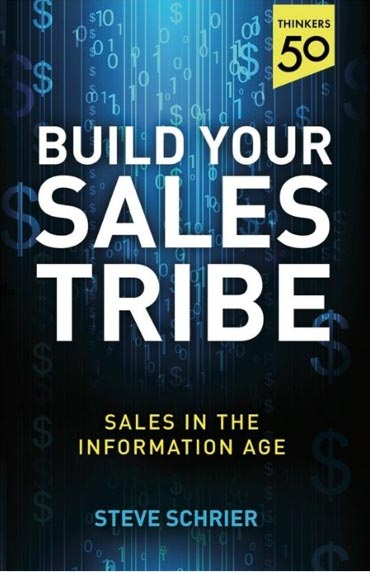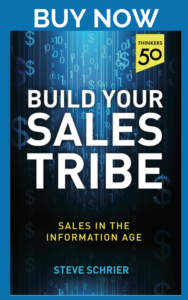
The COVID-19 pandemic has turned the world on its head in most places. But it has also accelerated the impact of the Information Age on many things. Sales, business development or whatever else you want to call it has been going in this direction for a while.
One of the most important aspect of selling has involved meeting other people right? Yes, that is true and virtual meetings will almost never be the same as meeting in person. But actually what the pandemic has uncovered is that this is not totally necessary, and that most deals can still be done without meeting someone in person.
What it does mean is that there should be an even more focus on the things that stand out for modern selling. Management, more than ever, now need to provide clear guidance on what is expected from their people responsible for selling their services and products.
Here are our top 5 things to focus on what to do now:
1. Value
Demonstrating value in the way your company establishes and runs relationships with other people is more important than it has ever been. All the people you have representing your company need to be full of rich information and generally have the answers – or have an informed, professional opinion. They know what to do now. They know what is likely to happen next. And if it doesn’t or is delayed, they can advise on that too. They know how to help their customers succeed. Engaging with your company should be like eating a rich chocolate cake or talking with a good friend – whether someone becomes a customer or not.
Value in the approach, value in the sales process, value in the products and value around the quality of relationship they will have by becoming a customer.
This will help your company in many ways. By helping you with your confidence to do business in strange times. It will help fend off the competition. It will help you hold up your pricing when the temptation may be to discount in the wake of disruption or delays caused by it. How do you continue to establish that value?
Be an Expert
As we discuss here, being an expert is crucial in modern selling. If you go to a hospital for an operation, you expect everyone there who work on you to be experts in what they do. If you put your car in for repair, you expect all the people who work on it to be skilled and experienced in their work. Why would the people you buy from be any different?
The people who represent your company to your customers, usually the sales people backed by their supporting groups within your organisation, should be able to communicate their expertise. This isn’t the responsibility of the individual sales person or function, it needs to be your whole organisation. It is the responsibility of management.
Alongside this, use the data you collect from your sales activities as as a whole to adapt to the conditions you are in now. Create stories that can be used in the selling to show value around the data – case studies, successes, key ways you have helped people etc. Try and keep these as fresh and new as possible – maybe have a discussion on it in your weekly team meeting for new ideas?
Focus should be on the activities that your company uses to communicate this message and support the team. The sales people should use these resources as the basis of establishing relationships that matter.
Ask the right questions
Your peoples questions need to uncover the seriousness of a prospective customers problems and create an urgency around that problem to find the solution to the pain. What problems are you trying to solve? Ask the questions that uncover these and show how big they are. Your team can solve these now right?
Ask questions like ‘How would it affect you if we were able to unlock a 20% increase in performance’. Provide models, data and evidence of these uplifts to support your questioning.
Use the questions to obtain real commitment from customers at each stage through a sales process. Document this in a way that is shared and gives the process real value to you and your prospective customers.
But don’t have people asking questions they can answer easily by doing a bit of background work.
Demo, show, share
Time to show your worth? Your people should be equipped to show what you have… make sure the content is punchy, clean and relevant. Make it case study and data based that drive clear conclusions. Only do it when it is clear that it is appropriate with your prospective customer. Don’t ram it down their throats! Treat people as human. Care about their time and yours. But show your expertise and demonstrate your value…
2. Empathy
Make sure your company is listening and capturing what is happening with your engagement with customers. Now more than ever the answers will be changing. This is a strategic asset to your business.
Empathy is one of the most important facets of a modern selling approach. It can vary greatly between individuals who are selling for you. But now it is imperative to listen and act on what is being said as a unit.
Your people need to listen to what they are being told in order to adapt it to the situation right in front of them. You also need to empower them to do it.
Once unattractive opportunities or channels to market may now look much more attractive. And nascent opportunities typically arise from any change – make sure your people are around to capture it.
It is important to bring these into an organisation as soon as possible so they may be acted on. And act on them you must… listen to your customers – empathise with them and adapt to help them. Not just the sales people but the people around them too.
But your sales people are the channel to get that information quickly… because they are talking to your customers.
3. Measure, measure, measure
Being data driven is important. There is a lot of collecting of data going on now. But there is no point having the data if you don’t use it!
The Information Age means you are able to test things and measure if they work. Start with the things that you do now. If you don’t capture the data on what is working then this is the start. If you do, work out what to measure carefully and create clear projects and actions, setting a timeframe for measurement. Is it working?
Remember the saying ‘statistics are a good slave but a terrible master’? Use the data and the measurements you set along with other factors around you to make decisions and test new ways of doing things or new areas which may unlock lucrative business opportunities and new channels.
4. De-risk doing business with you
This is not always possible. But, now more than ever it is important that you de-risk as many ways of people doing business with you as possible.
In technology businesses this can work well – once simple example, we saw a yoga software company charging no fees for its yoga class scheduling software during the lockdown period for yoga teachers who used it. Thereby, creating substantial value but also establishing a relationship with its potential customers. They will get some drop-off when they start to charge but ultimately, they have turned this into a win-win for them and their prospects.
For non-tech, this may be as simple as giving someone a payment holiday, a discount if they pay early or agreeing a shorter-term contract so they don’t feel tied down – if you are adding value, you can be confident that the customers who see it will stay with you. And if you are not adding value – or they can’t see it – you probably aren’t right for them anyway.
5. Use the technology
This last one is very obvious. But how many people are doing it well? And just because someone else is using the tech for them, it doesn’t mean it suits the way you work or sell your services and products.
Beware of pre-canned tools such as Customer Relationship Management (CRM) systems dictating how you operate your business – use the tools in the way you want not the other way around.
The technologies for communicating well and engaging with your customers has been developing for many years but varies greatly in how it works, who it suits and how it is implemented.
But it is the responsibility of management to provide these tools that work across an organisation to make it work. Along with the technology, it is important to establish the culture around it. But your sales people should not be the people who are working this out – that will just distract them from the day job!
Listen to this podcast from a CEO who runs a highly successful DISTRIBUTED business with 1,172 employees working in 75 countries:
We hope these are a few tips that can work for your company now.
What to do now – further reading:



Keep inline with the latest thinking in successful selling
This post is supports advice in Build Your Sales Tribe – Sales in the Information Age Book. If you own the book, thanks for visiting. If you don’t own the book, find out more here: www.salestribe.co.uk











